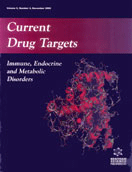Abstract
Family and twin studies as well as animal studies indicate that gallstone disease is, in part, genetically determined. Recently new single gene defects have been identified in specific patients with cholesterol and pigment gallstones. Examples include low phospholipid-associated cholelithiasis due to mutations of the gene encoding the hepatocanalicular phosphatidylcholine transporter, and pigment stones in association with mutations of the ileal bile salt transporter gene. Here we summarize the evidence for common genetic determinants of human gallstone disease in general and provide an inventory of human lithogenic genes. The precise understanding of such genes and their molecular mechanisms will establish new targets for rational drug design for this exceptionally prevalent and economically significant digestive disease.
Keywords: cholecystolithiasis, micelles, phospholipid vesicles, symptomatic gallbladder disease, abc transporter b, p-glycoprotein, knockout mice, orthologous, murine abcb gene



















